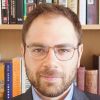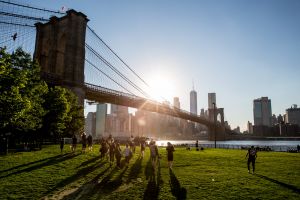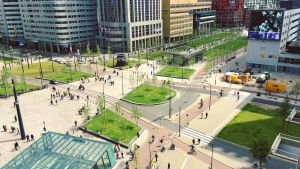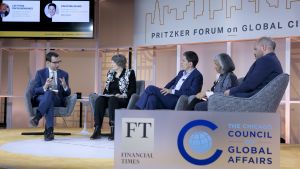In this report edited by Ian Klaus and Samuel Kling, a diverse set of experts examine the question of rights in, and to, the city in a wide and exciting array of geographies and contexts.
Introduced by the French sociologist Henri Lefebvre in 1968, the concept of the right to the city has been the subject of a diverse set of treatments and interpretations from academics, activists, and policymakers in recent years. The intellectual history of the right to the city is at times direct—a radical protest movement in the heart of the city focused on political and economic inequality—and at times meandering: a gesturing, stylish flaneur sauntering through the cityscape.
But COVID-19 and its associated crises offer the opportunity for clarity or new perspectives on the right to the city, thanks to the crises’ disorienting effects on the meanings and uses of urban space. City dwellers everywhere have experienced the pandemic in particularly spatial terms: it has altered where they go and how they travel, freighted certain places with danger, and targeted some neighborhoods over others. Overnight, outdoor spaces became critical public health infrastructure; bars and restaurants became disease vectors. The pandemic’s effects on work cleaved residents according to their ability to forgo the spatial ritual of the commute, with white-collar workers tending to stay home and most blue-collar and low-wage workers having to endure work on-site. The geography of the pandemic has exploited existing structures of inequality, with disease and death most widespread in neighborhoods with higher concentrations of poverty, overcrowded housing, and marginalized groups.
The essays in this collection explore these issues in Chicago and the wider world, from China and South Africa to Latin America. The collection’s first section, “Space, Place, and Inequality,” addresses these questions on an urban scale, each focusing on an element of urban life. The collection’s second section, “Local, National, and Global Intersections,” further broadens the lens to interrogate the relationship among cities and nation states and regions, and to explore global trends in development, trade, and governance.
Together, these essays offer perspectives from academics, activists, and policy professionals and public servants with the intention of generating interdisciplinary and international discussions. They highlight powerful inequities and contradictions in city life and also offer policy solutions.






